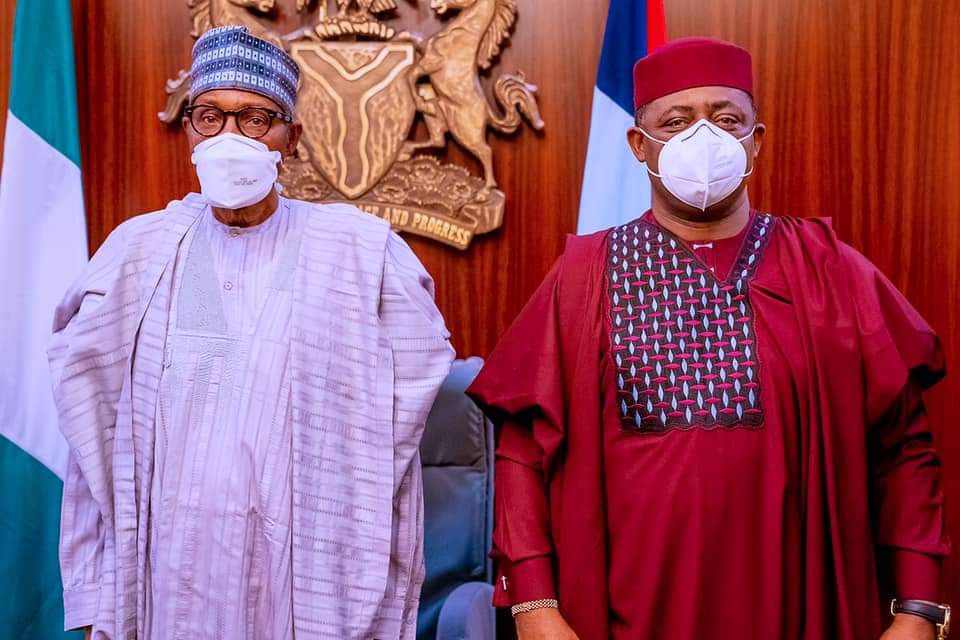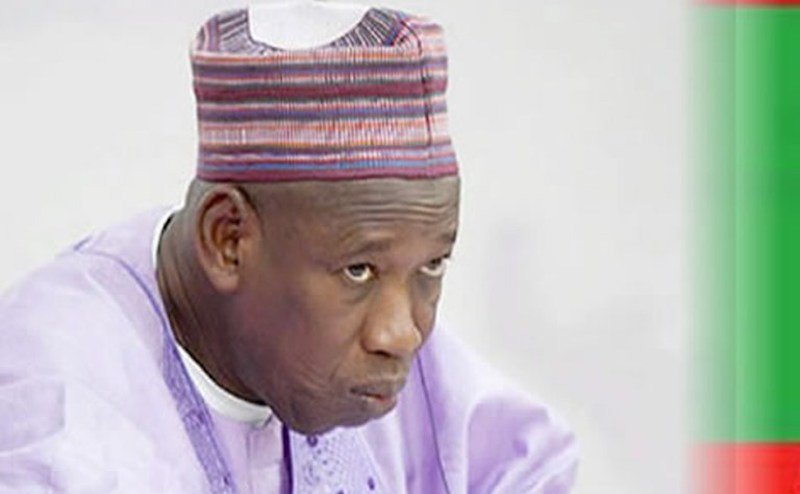By Eric Elezuo
The defection on Thursday of former Aviation Minister and Peoples Democratic Party (PDP) chieftain, Mr. Femi Fani-Kayode to the ruling All Progressives Congress (APC) has raised more dust than many of the high profile defections in recent times. The reason, according to many analysts, who spoke to The Boss, lies behind the vituperations the fresh decampee had heaped on the ruling party in particular, and on the person of President Muhammadu Buhari in the cause of his political career.
In recent times, the avalanche of defections to the ruling party from the PDP has risen in alarming proportion, with three serving governors calling it quits in a space of seven months.
In November 2020, the Ebonyi State governor, Dave Umahi left the party citing injustice. He was quoted as saing: “I offered this movement as a protest to injustice being done to South-east by the PDP. Since 1999, the South-east have supported the PDP. At a time the five states were all PDP. One of the founding members of the PDP was from South-east, the late former Vice President, Alex Ekwueme.
“It is absurd that since 1999 going to 2023, the South-east will never be considered to run for presidency under the PDP. And this is my position and will continue to be my position. It had nothing to do with me or my ambition,” Mr Umahi said.
It was revealed however, that the EFCC had linked Umahi with an alleged diversion of N400 million into private pockets during the 2015 presidential election through an arms deal.
The governor’s property is also rumoured to have been sealed before he joined the APC, and suddenly received pardon.
In May 2021, Mr Ben Ayade of Cross River State cross carpeted to the APC, saying that the character attributes of President Muhammadu Buhari and the realisation that Cross River, which has been emasculated economically following the ceding of its oil wells, needed to be in sync with the party at the centre, as the main reasons for moving.
Having seen and known the President of the Federal Republic of Nigeria and his commitment to this country, his nationalistic disposition and all the efforts he has made to bring Nigeria to where we are today, it is obvious that at this point we needed to join hands with him to build a Nigeria that we can be proud of.
“We need all governors to recognize that it is not the party that matters. It is a character, it is an honour, it is a commitment to the vision of this great nation,” the governor was quoted as saying.
About a month later, exactly on June 29, 2021, the Governor of Zamfara State, Bello Matawalle, made good his threat to defect, citing his quest to bring peace to the insecurity Zamfara State as his reasons for defecting.
“The issue of security is not just for APC or PDP. We have to put all hands on deck so that we can solve that problem.
“Politics is about interest and confidence. Many of the politicians have changed from one party to another, so it is not a new thing and I decided to change so that I can bring more peace to my state.
“We have achieved tremendous successes, particularly on the issue of banditry where we used kinetic and non-kinetic approaches. These approaches we used, in particular — dialogue — it worked but you know that even with the approach of dialogue, we have to bring a political solution to it.” Matawalle defended.
It is worthy of note that his deputy, Mahdi Aliyu, and another state legislator refused to join in the mass defection exercise.
Earlier however, many PDP stalwarts have found solace in the bosom of the ruling APC with tongues wagging that the sole reason hinges on the dire need to have corruption cases against them quashed. Much as many attempts have been made to deny such assertion, The Boss findings reveal that many of those politicians have pending cases with the Economic and Financial Crimes Commission (EFCC) and other anti-graft agencies.
Some of the politicians include former two terms governor of Akwa Ibom State, Chief Godswill Akpabio, former two terms governor of Abia State, Chief Orji Uzo Kalu, former Governor of Plateau State, Mr. Joshua Dariye. Major General Ihejirika (retd), Senator Danjuma Gobe and most recently Senator Stella Oduah and Fani-Kayode.
It has become obvious that escape from corruption charges and having a vintage position to contest a position in the 2023 general election have become the two major reasons for the mass decamping from the opposition PDP.
A The Boss investigation further revealed that most of the decampees, apart from finding shelter to hide from the law enforcement agencies owing to yet to be proven fraud cases, or on the verge of being proven fraud cases, are also in dire need of what ‘they can eat’, and so finds a haven in the ruling APC to find ‘bread’.
It would be recalled that during the 2019 election campaigns, the then Chairman of the party, Comrade Adams Oshiomhole, hinted in no uncertain terms that those who joined the ruling party would have their “sins” forgiven. Whether that was what the eloquent chairman meant at that time or not, situations have proved that he was far from wrong. The announcement singularly encouraged more politicians, not only from the main opposition party, but also from other parties, to pitch tent with the APC at that time.
“I am told that there are a lot of very senior people from PDP who have decided to join forces with President Buhari to take the broom to sweep away PDP and to continue to ensure that APC continues to preside all over Nigeria.
“We have quite a number of other leaders who have come. We have quite a number of other leaders who have come… in fact, once you have joined APC, all your sins are forgiven,” he had said.
We will not however, leave out the fact that at the point of making the comment, Oshiomhole was receiving a defector, whose name has name has some covert or overt relationship with ‘sin’.
As Fani-Kayode, who many believed would never join ranks with the APC, consequent upon his utterances which include that he ‘would die than join the APC or bow bow to Buhari’, the question on the lips of everyone now therefore, is who’s the next to decamp to the APC among the high profile PDP members.
In fact, Fan-Kayode gave an insight into who the next decampees may be much as the political world, especially in the Nigerian context permutates over known and unknown antecedents of the some jittery legs.
Fani-Kayode, while fielding questions from newsmen after being presented to Buhari, said that the governors of Enugu State, Ifeanyi Uguanyi, Oyo State, Seyi Makinde and Bauchi State, Bala Mohammed are all in line to decamp to APC.
But of more serious in the expectation of who the next decampee will be, falls in the radar of the immediate past president, Dr. Goodluck Jonathan. According to informed sources, the former president, who superintended over the country between May 2010 and May 2015, is under intense pressure to join the ruling APC. This is because of the promise made to him from various quarters of the party that he may be fielded as the party’s consensus candidate for the 2023 Presidential Election.
The source further stated that Jonathan is the preferred choice of members of President Muhammadu Buhari’s inner caucus, who has the interest of the north at the back of their minds, and who believe that Jonathan will further project the interest of the north. Not only that, the President’s kitchen cabinet believes that Jonathan should be the choice as a result of the fact that he is constitutionally licensed to serve only one term of office, since he had done one earlier between 2011 and 2015.
“This arrangement will further feather the nest of the northern elites, whose interest is to continue to maintain a strangle hold on the country for as long as possible. Jonathan remains their choice despite the fact that sacked him about six years ago, using unprintable expletives to describe him then” the source hinted.
The Boss investigation also revealed that the situation had warranted top officials of the PDP to pay Jonathan a visit to ascertain his position in the matter, but the former was quoted as neither confirming the report nor denying it. However, he was said to have declared that he didn’t know what to do because he was under intense pressure.
Will Jonathan be the next to decamp to the APC or the the three governors as postulated by Fani-Kayode, the hand of the clock continues to tick even as time is fast running out.

 News6 years ago
News6 years ago
 Featured6 years ago
Featured6 years ago
 Boss Picks6 years ago
Boss Picks6 years ago
 Headline6 years ago
Headline6 years ago
 Headline6 years ago
Headline6 years ago
 Headline5 years ago
Headline5 years ago
 Headline6 years ago
Headline6 years ago
 Headline6 years ago
Headline6 years ago













